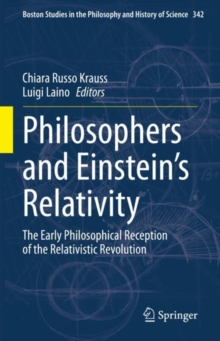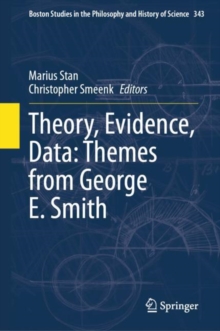
Epistemic Virtues in the Sciences and the Humanities Paperback / softback
Edited by Jeroen van Dongen, Herman Paul
Part of the Boston Studies in the Philosophy and History of Science series
Paperback / softback
Description
This book explores how physicists, astronomers, chemists, and historians in the late nineteenth and early twentieth centuries employed ‘epistemic virtues’ such as accuracy, objectivity, and intellectual courage.
In doing so, it takes the first step in providing an integrated history of the sciences and humanities.
It assists in addressing such questions as:What kind of perspective would enable us to compare organic chemists in their labs with paleographers in the Vatican Archives, or anthropologists on a field trip with mathematicians poring over their formulas?While the concept of epistemic virtues has previously been discussed, primarily in the contexts of the history and philosophy of science, this volume is the first to enlist the concept in bridging the gap between the histories of the sciences and the humanities.
Chapters research whether epistemic virtues can serve as a tool to transcend the institutional disciplinary boundaries and thus help to attain a ‘post-disciplinary’ historiography of modern knowledge.
Readers will gain a contextualization of epistemic virtues in time and space as the book shows that scholars themselves often spoke in terms of virtue and vice about their tasks and accomplishments. This collection of essays opens up new perspectives on questions, discourses, and practices shared across the disciplines, even at a time when the neo-Kantian distinction between sciences and humanities enjoyed its greatest authority.
Scholars including historians of science and of the humanities, intellectual historians, virtue epistemologists, and philosophers of science will all find this book of particular interest and value.
Information
-
Item not Available
- Format:Paperback / softback
- Pages:198 pages, 3 Illustrations, black and white; VI, 198 p. 3 illus.
- Publisher:Springer International Publishing AG
- Publication Date:23/06/2018
- Category:
- ISBN:9783319840406
Information
-
Item not Available
- Format:Paperback / softback
- Pages:198 pages, 3 Illustrations, black and white; VI, 198 p. 3 illus.
- Publisher:Springer International Publishing AG
- Publication Date:23/06/2018
- Category:
- ISBN:9783319840406










